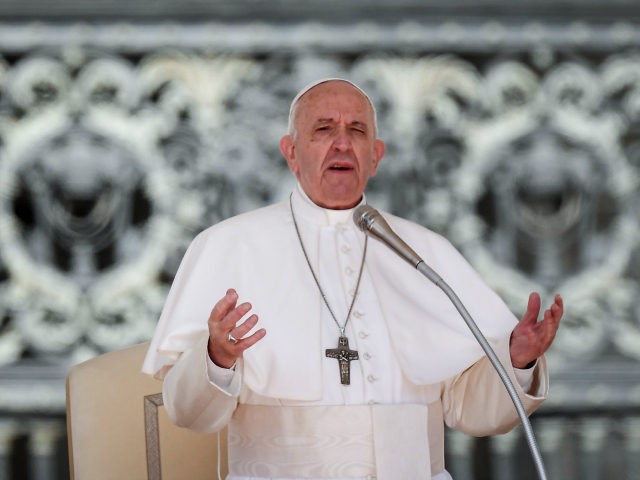ROME — Pope Francis said this week he believes in hell but likes to think of it as “empty” because of God’s great mercy.
“What I will say is not a dogma of faith but something personal,” the pontiff said Sunday evening on the Italian television program Che Tempo Che Fa.
“I like to think of hell as empty; I hope it is,” he told the show’s host, Fabio Fazio.
This is not the first time the pope’s hypotheses on hell have raised a stir.
In March 2018, for instance, the Italian daily La Repubblica reported that the pope had told his longtime friend, Eugenio Scalfari, founder of the newspaper, that he does not believe hell exists.
Asked by Scalfari, an atheist, about the punishment of the “bad” souls of people who died in sin, Pope Francis is quoted as denying hell.
“They are not punished. Those who repent obtain God’s forgiveness and enter the rank of the souls who contemplate him, but those who do not repent, and cannot therefore be forgiven, disappear,” he allegedly said. “There is no hell, there is the disappearance of sinful souls.”
In response, the Vatican released a carefully worded statement that did not deny the substance of the claims, provoking further consternation, even in the highest echelons of the Church.
What is reported by the author “is the result of his reconstruction, in which the pope’s exact words are not cited. No quotation of the aforementioned article must therefore be considered as a faithful transcription of the Holy Father’s words,” the Vatican statement read.
According to some observers, the pope’s hope for an empty hell has real consequences in the lives of the faithful.
If “you believe everyone is getting to Heaven regardless of how they live here on earth,” wrote Eric Sammons, the editor-in-chief of Crisis Magazine, “then the importance of both practicing the Faith and sharing it with others collapses.”
Earlier, “Catholics felt a duty to work for the conversion of non-Catholics, whether that be by supporting missionary works or by urging non-Catholics to become Catholic,” something that is no longer the case, Sammons wrote.
Some have suggested that the pope’s emphasis on social and political issues such as immigration and climate change rather than the salvation of souls is influenced by his belief that all or most people are saved anyway.
Pope Francis has urged Christians not to try to convert non-believers to the faith, insisting that such “proselytism” is the work of hucksters and unworthy of Christians.
“To evangelize is not to proselytize,” the pope told crowds gathered in the Vatican last January. “To proselytize is something pagan, it is neither religious nor evangelical.”
“This is not about proselytism, as I said, so that others become ‘one of us’ – no, this is not Christian,” he reiterated. “It is about loving so that they might be happy children of God.”
According to the Cambridge Dictionary, proselytizing means “to try to persuade someone to change their religious or political beliefs or way of living to your own.”
Proselytism — or the attempt to convert others to one’s faith — is different from evangelization, the pope has proposed, which is the joyful witness of one’s experience of Christ.
In 2019, the pope told a group of Christian high school students that they should respect people of other faiths and not attempt to convert them to Christianity, insisting “we are not living in the times of the crusades.”
Asked by one of the students how a Christian should treat people of other faiths, the pope said that “we are all the same, all children of God” and that true disciples of Jesus do not proselytize.
A Christian should never try to convince others of the truth of Christianity but should simply give a testimony of consistency and wait for others to ask about the faith, he proposed.
“You must be consistent with your faith,” he said. “It never occurred to me (and nor should it) to say to a boy or a girl: ‘You are Jewish, you are Muslim: come, be converted!’ You be consistent with your faith and that consistency is what will make you mature. We are not living in the times of the crusades.”
“The last thing I should do is to try to convince an unbeliever. Never,” he said. “The last thing I should do is speak. I should live my faith with consistency. And it will be my witness that will awaken the curiosity of the other who may then ask: ‘But why do you do this?’ And yes, then I can speak.”
“But listen, the gospel is never, ever advanced through proselytism,” he continued. “If someone says he is a disciple of Jesus and comes to you with proselytism, he is not a disciple of Jesus. Proselytism is not the way; the Church does not grow by proselytism.”

COMMENTS
Please let us know if you're having issues with commenting.